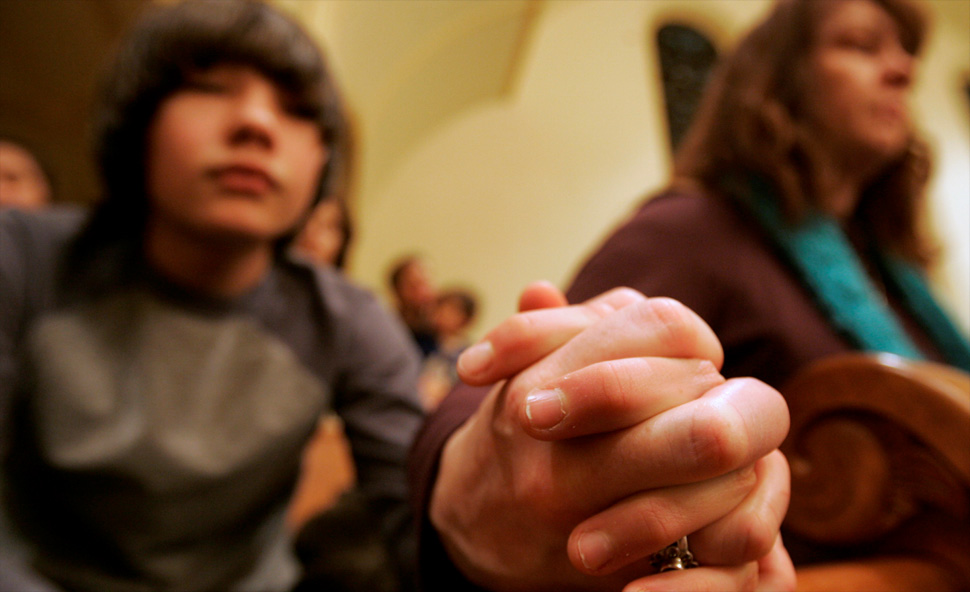The Everlasting Gospel: The Significance of Eschatology in the Development of Pentecostal Thought
 The Everlasting Gospel: The Significance of Eschatology in the Development of Pentecostal Thought by D.W. Faupel follows the following outline:
The Everlasting Gospel: The Significance of Eschatology in the Development of Pentecostal Thought by D.W. Faupel follows the following outline:
- The Pentecostal Message: In this chapter Faupel explores the pre-formation of the Pentecostal message. He relates its content to the Full Gospel, which includes: salvation, sanctification, baptism with the Holy Spirit, healing and second coming.
- Context of Pentecostal Thought: In this chapter Faupel gives a brief sketch of the American context at the end of the 19th century. His focus on the American culture as ground for Pentecostalism, however, seemed quite narrow especially in retrospect to the original glassolalia experience by the disciples on the Day of Pentecost.
- The Pentecostal Message: Faupel offers an interesting observation on the lives, messages, ministries and outcomes of three major pre-Pentecostal American figures. He writes of J.A. Dowie. Frank W. Sandford and Charles Parham.
- The Coming of the Latter Rain: Faupel begins the story of Seymuor as a continuation of the historical formation of the Pentecostal Movement linking it back to the ministry of Parham. He explores the beginning of the Azusa Street revival and its affect on Los Angeles, the United States and worldwide.
- Defining the Parameters of Pentecostal Though: The end of Faupel’s story focuses on the outcomes of the Latter Rain phenomenon. Main concern of the plot is the ministry of Durham in Chicago, who proposes the idea of Finished Work. Durham claims that thought Calvary there are only two works of grace, the salvation experience and the baptism with the Holy Spirit. The sanctification, he proposes, comes in the life of the believer through the salvation experience.
Leadership Development Seminar 2011
Broadcast Your Church Services for Free
Learn how to broadcast your church service or team training event on the internet
Examine several available options to broadcast with a special accent on the free version of uStream.TV.
Chose and set up proper camera and audio source for the broadcast
Broadcast from your computer, notebook or even your cell phone
Publish your church services as a LIVE stream on the internet and organize them in an internet based video archive
Embed LIVE broadcast or video recording on your church website or pastor’s blog
Publicize your streaming event or video recording using the social networks
Monetize your broadcast and contribute to your church media ministry fund
Looking Out of the Corner of Their Eyes: An Analysis of the Trend in Spiritual Development of Youth in Bulgaria
The Bulgarian Pentecostal movement is rooted in the Azusa Street Holiness Revival, which began in April of 1906. As a result of the revival, which followed throughout the United States less than a decade later, denominations such as the Church of God (1896) and Assemblies of God (1914) were established and sent missionaries to foreign lands including Bulgaria. After Assemblies of God missionaries to Eastern Europe Zaplishny and Voronaev embarked on their missionary endeavors in the 1920s, Bulgaria officially received the message of Pentecost. However, when Communist Dictatorship began in 1944, religious freedom was repressed and forced Pentecostal believers underground for 45 years until the Fall of the Berlin Wall in 1989.
From this oppression, Christians became creative in where and how they would gather. Services were held in secret rooms, moving from one house to the next and literally underground. During difficult times they would even gather in secluded mountain plains and hold services, which would last for days at a time. Even to this day, this tradition is kept where every year believers will assemble together for a time of praise and worship. And it is from these times that branched other church movements, which attempt to replicate this experience with a focus on evangelizing the youth of Bulgaria. However, some of these attempts have not been very successful. These movements successfully target young people, but the experiences which they are having are not as their fathers and grandfathers. Unfortunately, they are somewhat superficial and have become a time of leisure and socialization. There has been a perversion of the genuine experiences of the past in this attempt to simply copy what is happening without having a sincerely encounter with God. The church attempts to keep the tradition without having the experience.
Yet, in the midst of these movements of camps, rallies, mega services, concerts, there are young people which do have a genuine encounter and are on fire for God. But unfortunately, these movements with a lack of a better word are not properly equipped with a follow through plan in which the youth can be plugged into a local church where they can be discipled. It is almost as if the churches do not have an internal program for youth because they are relying on the many external activities to minister to their youth.
Many Bulgarian congregations are struggling with how to motivate their youth locally. They are confused why during the times of conferences and camps youth appear to be on fire for God, but when they return to their local church, for the ones who have a local church, they “lose” this drive. The simple, simple answer to this is that our youth are lacking in a strong internal biblical foundation. Youth need this foundation to build on in order to genuinely grow in Christ. Therefore, the churches’ focus should be to educate our children and give a solid Biblical basis as opposed to waiting until they are lost to gather them in a camp and attempt to reach them. If ones motivation is based internally, no external factor will be needed to motivate your youth. There is no substitute for an internal passion for Christ for when something is internal it does not come and go with a movement or trend. This foundation comes from our fathers and mothers and from the local church.
Youth are ready for a serious authentic move of the Spirit, which is Biblical based in the foundation of the roots from which their faith is grounded. When understanding from where you came, you will be able to appreciate your here and now. Meaning that in identifying with your roots you know who you are and do not waiver with movements. But for those whom have had a genuine encounter on the mountain tops, so to speak, where are they to go? Who will father them? With the crisis in leadership in the churches of Bulgaria, there is a spirit of discouragement and distrust among believers. This is harsh to say, but should not be kept silent simply because of pride. Only when Bulgaria is ready to recognize this, will it be ready to genuinely minister to youth. It is only then that the young people will have a place to go and someone to minister to them. For how can one minister to another when they themselves are occupied with bitterness and power.
Children from birth watch everything. All is new to them, everything is interesting and they are instinctively curios. This curiosity is a God given desire in order to learn and grow. When a child is learning to pray they are told to bow their heads, close their eyes and listen to the words of their parents, but if you observe this process closely you will notice that a child will at first peak around. Why do they do this? Initially, one might think that a child is just playing around and not taking prayer seriously, however this is not the case. They look out of the corner of their eye and peak around in order to watch and see what you do and how to pray. They cannot learn when their eyes are closed. They have never before closed their eyes to pray and need a model.
So just as children look to their fathers and mothers to learn how to pray, the Bulgarian youth are looking to their spiritual fathers to know how to pray. With much sorrow I say the following: these children do not like what they are seeing. They peak out of the corner of their eye and see arguing, hostility, selfishness, depression, burnt-out, and worst of all, they do not see their fathers praying. They do not see their fathers fasting. If a father does not pray or fast how will the children know how to do these biblical acts. This lack of spiritual discipline leads to a rebellion against the church in which you hear from the mouths of babes “I believe in God, but I don’t believe in the church”. This factual quote should be eye opening. Yet instead, we keep our eyes wide shut. We need to overcome the lie that if we do not see things or problems, they do not exist. It is time to listen to what we know is truth.
So on one hand, we have a lost generation that does not have any faith in organized religion and on the other, we have a generation of youth that is hungry if not starved. They are hungry for solid foods and tired of living off babes milk. They are ready for a real experience and need spiritual parents. Who is willing to be that spiritual father? Who is willing to stop arguing? Who is willing to open their house again to be a home for the spiritual orphans of Bulgaria? Let the church once again be a place of refuge and not a place to be prostituted out to the highest bidder. Let the pastor genuinely be a father again instead of a corrupt politician. Let the children of Bulgarian have a voice, because if their voice is taken away today, they will have no future tomorrow and be lost for an eternity. This is not a price we should be willing to pay.
This article is based on a word the Lord gave me on 09/09/2010 that “The Children of Bulgaria are looking out of the corner of their eyes up to their fathers and not liking what they are seeing”.
-Kathryn N. Donev
Moral Development
Moral development is defined as the development regarding rules and conventions about what people should do in their interactions with other people. Such development involves the development of thoughts, feelings and actions concerning standards or what is right and wrong, which includes an interpersonal and intrapersonal dimension. The intrapersonal dimension accounts for ones actions when they are not engaged social and the opposite is true for explaining the interpersonal dimension.
The social learning theory suggests that we learn via social experiences. Meaning our behaviors and actions result from what we model from others. Therefore, the social learning theory might explain moral development in children as a result of modeling observed moral behaviors and actions. When a child is provided with models that behave morally, that child is prone to adopt the observed actions.
Social learning theorists believe that moral behavior is influenced by a particular situation and that ones ability to resist temptation is closely correlated with self-control. Therefore, a child must be taught to control impulses, learn to be patient and to delay being gratified. This is best done through role modeling and providing appropriate examples. It is also suggested that when a child is rewarded for acting out a modeled behavior the likelihood of that behavior re-occurring increases. The opposite is also true; when the behavior is punished or not rewarded then the behavior will likely decrease. Therefore, it is crucial to not only provide a child with the appropriate models, but a child must be encourage for acting out moral behaviors in order to understand that such behavior is a good thing. However, when there is no reward present is when this intrapersonal dimension comes into play. This is when one does moral acts for the sake of doing what is right. It is important to instruct a child at an early age and instill within them this concept of right and wrong in order for one to act morally when it is thought that no one is watching. When no one is watching is when the true sense of morals arises.












